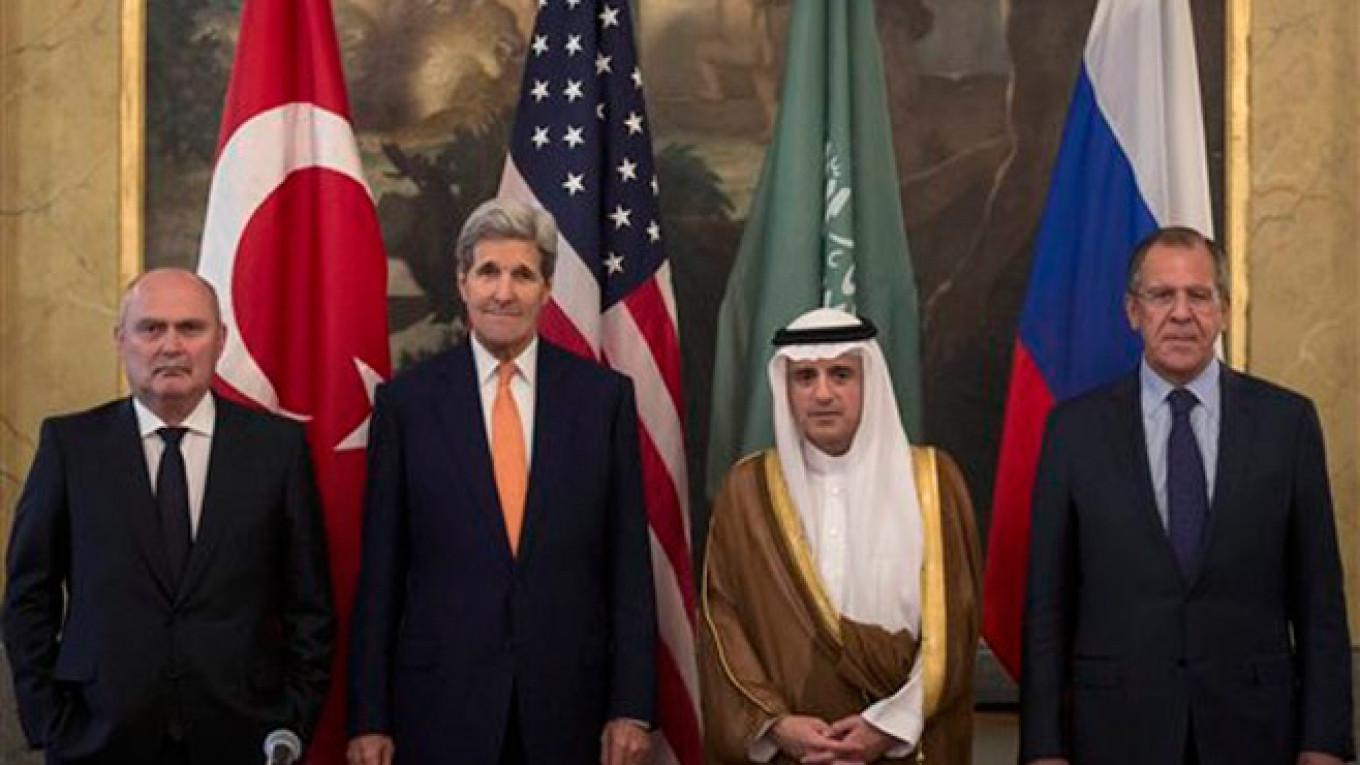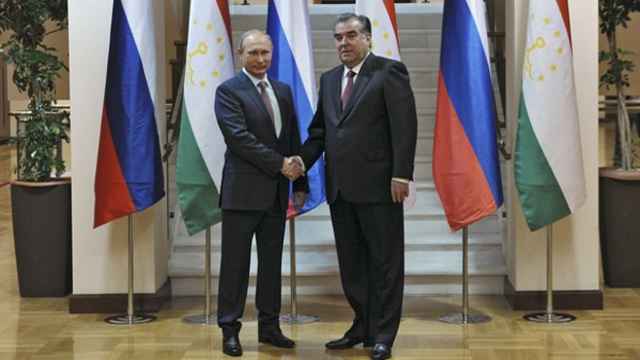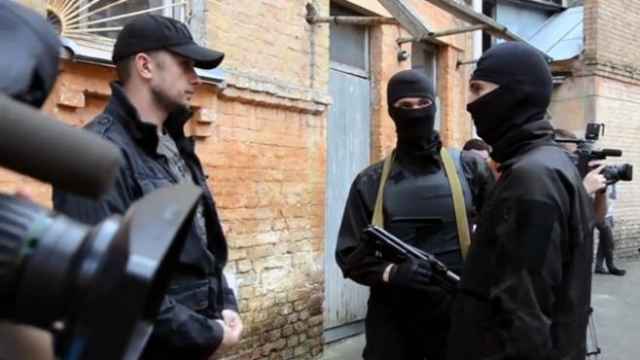Love him or hate him, President Vladimir Putin continues to surprise the West. The president's latest surprise occurred last week, when Syrian President Bashar Assad suddenly turned up in Moscow.
At first glance, it appeared that this was just a situation where Putin once again was taking an opportunity to thumb his nose at his Western critics. As U.S. President Barack Obama continues to assert that "Assad must go," perhaps Putin was reaffirming his loyalty to Assad as a riposte? The answer is yes and no.
By hosting Assad, Putin succeeded in bolstering the Syrian regime, while also sending a message to other autocrats in the region that "unlike those fickle Americans, you can count on us." This was not the only purpose of the meeting though. Behind the theatrics and expressions of mutual loyalty, Putin also sent numerous signals of his willingness to explore a political solution to the Syrian crisis.
According to the transcript of the meeting from the Kremlin's website, Putin asserted that "positive results in military operations will lay the base for then working out a long-term settlement based on a political process"
Putin added that Russia was "ready to make our contribution not only to the military operations and the fight against terrorism, but also to the political process. We would do this, of course, in close contact with the other global powers and with countries in the region that want to see a peaceful settlement to this conflict."
By continuing to reference the possibility of a political settlement in Syria, Putin placed himself clearly in the center of any ongoing political process. Russia's interests in Syria run deep and wide, and the Kremlin sent signs that it intends to be a key interlocutor involved in any discussions of a political solution to the crisis.
While this may seem far-fetched — after all, how can Russia be an honest broker while standing so strongly behind Assad — in reality ample scope exists for Russia to play a leading role in any political discussions on Syria.
There are a number of reasons for this. First of all, Assad is increasingly dependent on Putin, not only for military and political support, but — as Assad's transport to Moscow on a Russian military plane demonstrated — even for his personal safety. It is Assad's very dependence on Russia that provides Putin the leverage to force Assad to the table.
Second, behind the scenes, Putin has sent clear signals that Russia does not see itself as forever tied to Assad personally.
Putin ultimately wants to keep alive a functional Syrian state that protects Russia's interests in Syria — which leaves room for reducing Assad's role in the country. This could involve any number of scenarios. Replacing Assad with a secular Sunni strongman capable of taking the fight to the Islamic State; establishing an agreed upon transitional period leading to Assad's eventual departure; or reducing Assad's responsibilities so he takes on a face-saving ceremonial role.
Third, Putin is clearly attempting to present himself to the leading Sunni states in the region as a man with whom they can do business. Immediately after Assad's departure, Putin reportedly spoke with the major Sunni leaders in the Gulf states and Jordan to brief them on his conversations with Assad. Putin also recently hosted both the foreign minister and defense minister of Saudi Arabia.
The Kremlin understands that for the Saudis, Iran is the main enemy. By taking small steps to reach out to Saudi leaders, Putin successfully distinguishes himself in Riyadh's eyes from the Mullahs in Tehran. The Sunni states' first preference undoubtedly remains the removal of Assad and a complete defeat for the Iranians. However, a scenario in which Assad stays on in some capacity but where Russia rather than Tehran emerges as the dominant outside power may well be a compromise with which Saudi Arabia and its Sunni allies could live.
Unlike Shiite Iran, with its ideological and religious determination to export its revolution to other states in the region, Russia is a status quo power, with no agenda beyond preserving its economic and security interests in Syria.
Russia has moved quickly to follow up on the momentum from Assad's visit. First, a Russian Foreign Ministry official asserted that the moderate rebels from the Free Syrian Army (FSA) — the same group supported by the United States — recently visited Moscow. Russian Foreign Minister Sergei Lavrov also publicly offered to provide air support to the FSA in its ongoing fight with the Islamic State.
Obviously, there is a strong element of theater here. Putin has repeatedly demonstrated his tactical mastery over the last two years, repeatedly leaving Western leaders flummoxed by his twists and turns. Indeed, at the same time Lavrov offered support to the FSA, Russia's main weekly television show was paying homage to Assad, clearly sending a conflicting signal.
Despite these obvious contradictions though, the West and its Sunni allies should at least explore with Moscow the possibilities for some kind of political settlement in Syria that both could support.
At a bare minimum, despite their numerous differences, all sides agree on the need to destroy the Islamic State, providing at least some basis for cooperation. Wisely, U.S. Secretary of State John Kerry, Lavrov and the Saudi and Turkish foreign ministers have already met once in Vienna. Although progress was reportedly minimal, there is nothing lost by continuing to feel the Russians out.
While Western policy-makers' frustration over Putin's longtime support for Assad is understandable, for now at least the path to a settlement in Damascus runs through Moscow.
Josh Cohen is a former USAID project officer involved in managing economic reform projects in the former Soviet Union. He contributes to a number of foreign policy-focused media outlets and tweets at @jkc_in_dc
A Message from The Moscow Times:
Dear readers,
We are facing unprecedented challenges. Russia's Prosecutor General's Office has designated The Moscow Times as an "undesirable" organization, criminalizing our work and putting our staff at risk of prosecution. This follows our earlier unjust labeling as a "foreign agent."
These actions are direct attempts to silence independent journalism in Russia. The authorities claim our work "discredits the decisions of the Russian leadership." We see things differently: we strive to provide accurate, unbiased reporting on Russia.
We, the journalists of The Moscow Times, refuse to be silenced. But to continue our work, we need your help.
Your support, no matter how small, makes a world of difference. If you can, please support us monthly starting from just $2. It's quick to set up, and every contribution makes a significant impact.
By supporting The Moscow Times, you're defending open, independent journalism in the face of repression. Thank you for standing with us.
Remind me later.







